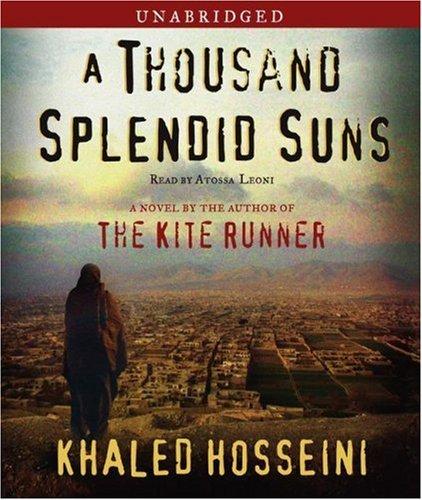4thace reviewed A Thousand Splendid Suns by Khaled Hosseini
Review of 'A Thousand Splendid Suns' on 'Goodreads'
4 stars
This was a harrowing story at so many points along the way, violence, political repression, sexual domination, and torture. There are so many bits that would seem to ask for trigger warnings for readers at risk. But at the same time the linked stories of two Afghani women who transcend their assigned roles you get to see all the bad things about to happen the long in advance. Their paths contrast, with Maryam raised in poverty carrying a a burden of shame compared to Layla's fairly happy childhood changing over to deprivation and pain over a single disastrous event. This focus on women's points of view is a departure from the author's first novel [b:The Kite Runner|77203|The Kite Runner|Khaled Hosseini|https://i.gr-assets.com/images/S/compressed.photo.goodreads.com/books/1579036753l/77203.SY75.jpg|3295919] and it is an effective way to look at a completely different side of Afghan history. It felt as though the characters had inherently more at stake each time the regime changed, simply because of the ways in which the authorities could cancel their agency.
I can easily imagine a draft of this book with a just a little more darkness which would have me say "That's enough -- this place is under a curse, with nothing but demons and victims there. No reason to stay!" But there are enough moments of beauty, understanding, and communion that I could see the draw Afghanistan has on those from there despite the monstrous things that have happened there. The last part of the book is when the western powers and the Northern Alliance invade Afghanistan, but no one leaves for the west. After a short idyllic stay in the mountains of Pakistan, Laila and her family go back to Afghanistan, to Herat and to Kabul to receive epiphanies about what it was all for. As I write this, the Taliban has forced the last western occupier, the United States, to leave in disarray, and it is natural to foresee a recapitulation of the horrors of her earlier regime. The hope is still there though that decent citizens can maybe this time manage to live lives with a kind of happiness. For the women, it might be like the burqa, both burden and shelter.
The audiobook presentation narrated by Atassa Leoni was clear and dramatic, with no problem distinguishing the characters without having to resort to accents. Partway through the experience of listening to it I felt both impatient to reach the end of the tale and apprehensive about what it was going to be, which I think was just what the author intended.

